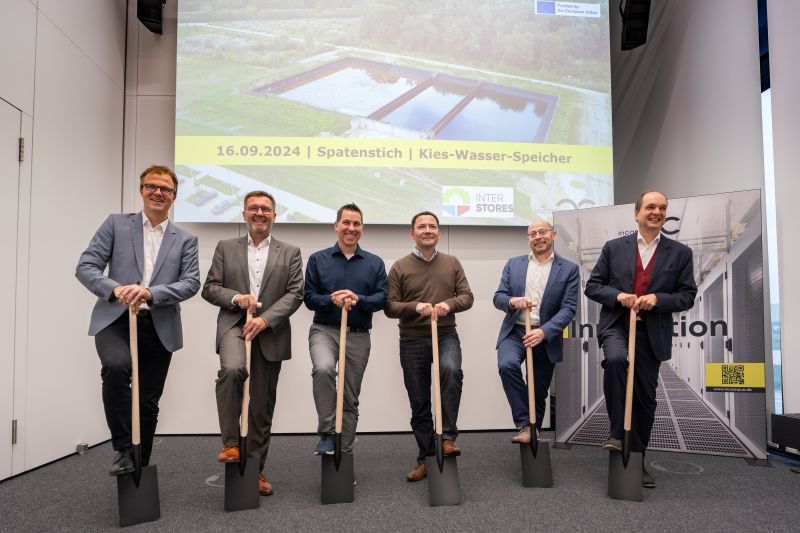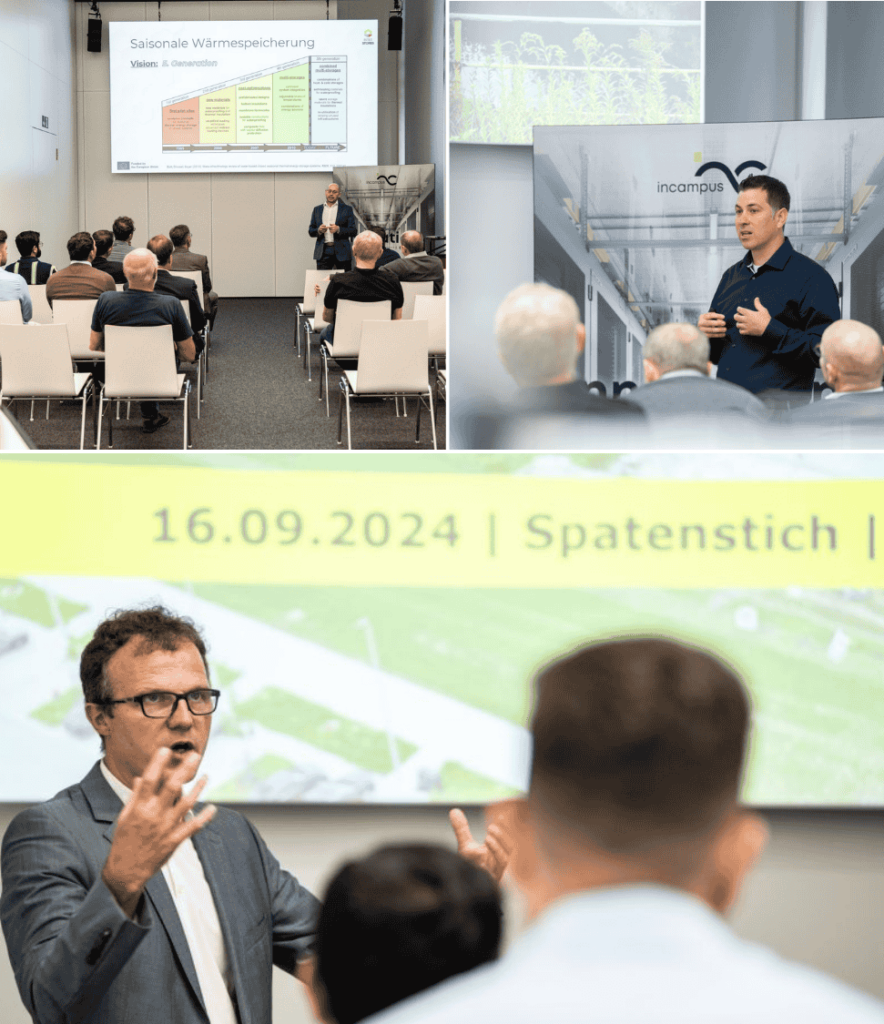Ingolstadt, 16th September 2024 – We are excited to announce the groundbreaking of the Gravel-Water Thermal Energy Storage at incampus, as part of the INTERSTORES project. The Ingolstadt demonstration site represents a significant leap forward in the drive toward sustainable, efficient, and renewable energy storage solutions.

Symbolic groundbreaking was released indoors due to the heavy rain (from left): Christof Messner and Norbert Forster (Managing Directors at incampus), as well as Markus Faigl (Project Manager for INTERSTORES at incampus), Rainer Strobel (Head of technical consulting at PGMM – INTERSTORES partner), Prof. Peter Bayer (Head of Department of Applied Geology, MLU, INTERSTORES Coordinator) and Prof. Tobias Schrag (Head of Institute of new Energy Systems, THI, INTERSTORES partner).
Photo taken by: Manfred Dittenhofer
The Gravel-Water Storage facility is a repurposed fire water basin, originally built in the late 1960s, transforming it into a cutting-edge seasonal thermal energy storage (sTES) system. By converting existing infrastructure, this facility is minimizing environmental impact while maximizing energy efficiency. This innovative solution is designed to store excess heat and optimise seasonal energy use, addressing the growing global demand for cleaner energy sources.

Key Project Facts:
Location: incampus, Ingolstadt
Storage Volume: Approx. 18,000 m³
Construction Timeline: September 2024 – Mid-2025
Materials: 17,300 t of gravel, 7,200 m³ of water
Pipeline Installation: 18,000 m
The project’s goal is to store thermal energy with a capacity of approximately 400 MWh, leveraging an intelligent system that balances the supply and demand of energy. The storage system can handle temperature ranges from 5°C to 35°C, ensuring flexibility and reliability in different climate conditions.
Environmental and Economic Benefits
One of the most exciting aspects of the Gravel-Water Storage system is its environmental impact. By reusing existing infrastructure and natural materials like gravel and water, the project eliminates the need for chemical-based storage solutions, thus reducing ecological harm. Moreover, the system is designed to minimize energy losses, making it an efficient method to store energy produced from renewable sources.
The incampus is already CO2-neutral in its energy operations, and the addition of this storage system brings the campus one step closer to becoming a fully zero-energy facility. This project is a cornerstone of the INTERSTORES mission to promote sustainable energy practices across Europe and beyond. The system also contributes to lowering energy and operational costs at the site, enhancing long-term economic sustainability.
This groundbreaking at incampus marks the beginning of the practical demonstration phase of the project. By leveraging the innovative insights from the project, the Gravel-Water Storage system will not only serve as a model for other sustainable energy systems but will also enable knowledge transfer and cost-efficient solutions for future energy projects across Europe.
Presentations – Christof Messner (Managing Director of incampus, Prof. Peter Bayer (Head of Department of Applied Geology, MLU, INTERSTORES Coordinator) and Markus Faigl (Project Manager for INTERSTORES at incampus)
Groundbreaking Ceremony Agenda & Banner
Links to press releases – IFG Ingolstadt & Neuburger Rundschau
